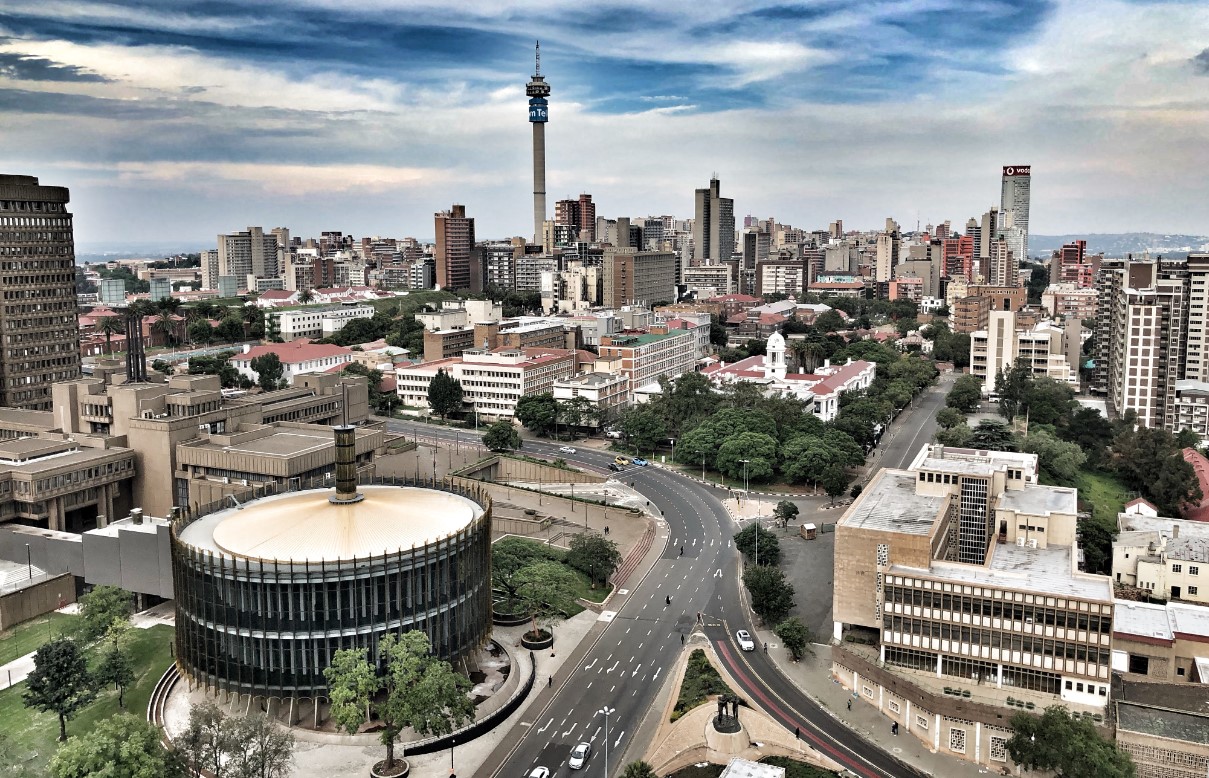Incorporate A Company In South Africa In 2025

South Africa, often referred to as the “Rainbow Nation,” is renowned for its cultural diversity, stunning landscapes, and abundant natural resources. Located at the southernmost tip of the African continent, it serves as a gateway to the region’s growing markets. South Africa is a middle-income, emerging market economy with a mix of advanced industries, well-developed infrastructure, and sectors still in development. Despite its challenges, the nation is a regional powerhouse, playing a significant role in Africa’s economic landscape.
Standard of Living in South Africa
- Housing: Urban centers like Johannesburg, Cape Town, and Durban provide a range of housing options, from affordable apartments to luxury estates. However, informal settlements exist in less developed areas, highlighting the economic divide.
- Healthcare: South Africa has both public and private healthcare systems. While private facilities are world-class, public healthcare is often under-resourced, leading to disparities in access and quality.
- Education: Education is compulsory for children aged 7 to 15. Public schools are widespread, but private schools offer higher-quality education. Universities like the University of Cape Town and Stellenbosch University are among Africa’s best.
- Employment: While South Africa has a high unemployment rate, its diverse industries, including mining, agriculture, finance, and tourism, offer opportunities for skilled workers.
Personal Taxes in South Africa
- Income Tax Rates:
- Individuals earning below ZAR 95,750 annually are tax-exempt.
- Income between ZAR 95,751 and ZAR 237,100 is taxed at 18%.
- Rates increase incrementally, with the highest earners (above ZAR 1,817,000) paying 45%.
- Social Security Contributions: While South Africa does not have a traditional social security tax, employees and employers contribute to the Unemployment Insurance Fund (UIF), capped at 1% of the salary each.
- Tax Residency: Residents are taxed on their worldwide income, while non-residents pay taxes only on income earned within South Africa.
- Deductions and Exemptions: Taxpayers can claim deductions for retirement contributions, medical expenses, and certain investment-related expenses.
Corporate Taxes in South Africa
- Corporate Income Tax (CIT):
- The standard CIT rate is 27% for tax years ending after March 31, 2023. Previously, it was 28%.
- Value-Added Tax (VAT):
- A VAT of 15% applies to most goods and services, with exemptions for basic food items, educational services, and public transportation.
- Small Business Tax:
- Small businesses benefit from reduced tax rates, with income below certain thresholds taxed at lower rates.
- Dividend Tax:
- A 20% withholding tax is applied to dividends paid to shareholders.
- Incentives:
- Tax incentives exist for investments in renewable energy, research and development, and employment creation.
Major Industries in South Africa
- Mining and Natural Resources: South Africa is rich in mineral resources, including gold, platinum, coal, and diamonds. The mining sector is a cornerstone of the economy, contributing significantly to exports and employment.
- Agriculture and Agribusiness: The agricultural sector produces wine, citrus fruits, grains, and livestock. South Africa’s fertile lands and favorable climate make it a leading exporter of fresh produce and processed food products.
- Tourism: Tourism plays a vital role in the economy, attracting millions of visitors annually. Popular destinations include Cape Town, the Kruger National Park, and the Garden Route. Ecotourism and adventure tourism are growing niches.
- Manufacturing: South Africa has a strong manufacturing base, producing automotive components, chemicals, textiles, and consumer goods. The automotive industry, anchored by global brands like BMW and Volkswagen, is a standout performer.
- Energy: With significant investments in renewable energy, particularly wind and solar power, South Africa is diversifying its energy portfolio. The country also remains a key coal producer.
- Finance and Banking: South Africa’s financial services sector is among the most developed in Africa, with a robust banking system and a well-regulated stock exchange (JSE).
- Technology and Telecommunications: The tech industry is rapidly growing, with advancements in fintech, e-commerce, and digital innovation. Initiatives like “Silicon Cape” in Cape Town position South Africa as a tech hub.
Inflation & Cost of Living in South Africa
Inflation in South Africa has fluctuated in recent years, influenced by global trends, currency exchange rates, and domestic economic conditions. The inflation rate typically ranges between 4% and 6%, though external shocks can push it higher.
- Housing:
- Rent for a one-bedroom apartment in cities like Johannesburg or Cape Town ranges from ZAR 6,000 to ZAR 12,000 per month.
- Rural areas and smaller towns offer more affordable housing options.
- Food and Groceries:
- Local produce is reasonably priced, but imported goods can be expensive due to tariffs and logistics costs.
- Utilities:
- Monthly utilities, including electricity, water, and sanitation, average around ZAR 1,500–ZAR 3,000, depending on usage.
- Transportation:
- Public transportation options like minibusses are affordable, though private car ownership is common due to limited public transit infrastructure in some areas.
- Healthcare and Education:
- While public services are accessible, many residents and expats prefer private healthcare and schooling, which come at a premium.
Property Tax, Services Tax, and Sales Tax in South Africa
- Property Tax:
- Property owners pay municipal rates based on the market value of their property. Rates vary by municipality and are used to fund local services like waste management and infrastructure.
- Value-Added Tax (VAT):
- VAT is levied at 15% on most goods and services. Certain essentials, like basic food items and public transportation, are exempt or zero-rated.
- Excise Duties:
- Applied to specific goods like alcohol, tobacco, and fuel to regulate consumption and generate revenue.
- Capital Gains Tax:
- Taxed at an effective rate of up to 18% for individuals and 4% for companies on the disposal of assets.
South Africa’s tax system is robust and well-regulated, ensuring revenue collection for public services and infrastructure development.
Types of Business Entities in South Africa
Entrepreneurs have several options for establishing a business in South Africa, each catering to different needs:
- Sole Proprietorship:
- A straightforward structure ideal for small businesses. The owner is personally liable for debts and obligations.
- Private Company (Pty Ltd):
- The most common structure for medium to large enterprises.
- Requires at least one director and shareholder.
- Liability is limited to the capital invested.
- Public Company:
- Suitable for businesses seeking to raise capital through public share offerings.
- Subject to stricter regulations and disclosure requirements.
- Partnership:
- Two or more individuals or entities share ownership and profits. Partners have joint liability.
- Branch Office:
- Allows foreign companies to operate in South Africa without creating a separate legal entity.
- Non-Profit Company (NPC):
- Designed for organizations operating for public benefit, such as charities and NGOs.
Licenses to Start a Business in South Africa
Starting a business in South Africa requires obtaining specific licenses and approvals:
- Company Registration:
- Businesses must register with the Companies and Intellectual Property Commission (CIPC).
- Tax Registration:
- Register for an income tax number with the South African Revenue Service (SARS).
- VAT registration is mandatory for businesses with an annual turnover exceeding ZAR 1 million.
- Sector-Specific Licenses:
- Industries like healthcare, mining, and food services require additional permits from relevant authorities.
- BEE Compliance:
- Businesses must comply with Broad-Based Black Economic Empowerment (BEE) regulations to promote economic inclusion.
- Municipal Licenses:
- Local permits may be required for businesses operating within specific jurisdictions.
Opportunities for Expats for Business Growth in South Africa
South Africa’s diverse economy and regional influence create numerous opportunities for expats:
- Renewable Energy:
- Investments in wind, solar, and bioenergy projects align with the country’s push for sustainable development.
- Technology and Innovation:
- Opportunities in fintech, e-commerce, and digital transformation are abundant, especially in urban hubs like Cape Town.
- Tourism and Hospitality:
- With world-class destinations and growing international interest, expats can invest in travel services, eco-tourism, and luxury hospitality.
- Agriculture and Agri-Tech:
- Innovations in farming and food processing are in demand to enhance productivity and sustainability.
- Real Estate Development:
- Urbanization and housing shortages present opportunities in residential and commercial property development.
- Education and Training:
- Expats with expertise in vocational training, language education, and IT skills can tap into the growing demand for skill development.

Citizenship for Expats in South Africa
Expats seeking long-term residence or citizenship in South Africa have several pathways:
- Permanent Residency:
- Expats can apply for permanent residency after five years of continuous residence on a valid visa.
- Investors, skilled workers, and spouses of South African citizens are eligible for expedited processing.
- Citizenship by Naturalization:
- Expats must have lived in South Africa for at least five years as permanent residents before applying for citizenship.
- Investment-Based Residency:
- High-net-worth individuals can qualify for residency by making significant investments in South Africa’s economy.
- Dual Citizenship:
- South Africa allows dual citizenship, provided the individual applies for and receives permission before acquiring another nationality.
Why Register a Company in South Africa?
- Strategic Location: South Africa’s location at the southern tip of the African continent provides excellent access to emerging markets across Africa, the Middle East, and beyond. Its role as a regional logistics hub enhances its attractiveness.
- Diverse Economy: With industries ranging from mining and agriculture to finance and technology, South Africa offers opportunities across a variety of sectors. The country’s advanced infrastructure supports business operations and expansion.
- Favorable Trade Agreements: South Africa is part of multiple trade agreements, including the African Continental Free Trade Area (AfCFTA) and the Southern African Development Community (SADC), enabling businesses to access broader markets.
- Government Incentives: The government provides incentives for investments in sectors such as renewable energy, manufacturing, and technology. Special Economic Zones (SEZs) offer tax benefits and infrastructure support to businesses.
- Strong Financial System: South Africa boasts one of Africa’s most advanced banking systems, offering businesses access to modern financial services and investment options.
How to Register a Company in South Africa
The process of registering a company in South Africa is streamlined, thanks to digital platforms and the support of the Companies and Intellectual Property Commission (CIPC). Here’s a step-by-step guide:
- Choose a Business Structure: Select the type of entity that suits your business needs:
- Private Company (Pty Ltd): Common for small to medium enterprises.
- Public Company: Suitable for larger enterprises intending to raise capital through public offerings.
- Sole Proprietorship: Ideal for single-owner businesses.
- Non-Profit Company (NPC): For charitable or social enterprises.
- Reserve a Business Name: Use the CIPC’s online system to check the availability of your desired business name and reserve it.
- Prepare Documentation: Compile the necessary documents, including:
- Identity documents of directors and shareholders.
- Memorandum of Incorporation (MOI), outlining the company’s governance structure.
- Register with the CIPC: Submit your application and documents to the CIPC. Once approved, you’ll receive a registration number and a certificate of incorporation.
- Obtain Tax Registration: Register for an income tax number with the South African Revenue Service (SARS). If your annual turnover exceeds ZAR 1 million, VAT registration is also required.
- Open a Corporate Bank Account: Open a business bank account to manage finances and comply with regulatory requirements.
- Comply with Sector-Specific Licenses: Depending on your industry, you may need additional permits, such as health certifications for food businesses or mining licenses for mineral extraction.

Cost to Register a Business in South Africa
The cost of registering a business in South Africa is relatively affordable, making it accessible to local and foreign entrepreneurs. Key expenses include:
- Company Registration Fees:
- Name reservation: Approximately ZAR 50.
- Registration fees: Around ZAR 125 to ZAR 475, depending on the business structure.
- Professional Fees: Engaging consultants or legal advisors to assist with registration can cost between ZAR 2,000 and ZAR 5,000, depending on the complexity.
- Sector-Specific Licenses: Industry-specific permits and licenses range from ZAR 500 to ZAR 10,000, depending on the sector.
- Tax Compliance: VAT registration, while free, may involve compliance costs such as hiring accountants or tax consultants.
- Banking Fees: Setting up a corporate bank account incurs nominal fees, typically less than ZAR 1,000.
The total cost to establish a small to medium enterprise in South Africa generally falls between ZAR 5,000 and ZAR 15,000, excluding ongoing operational costs.
Relation with Other Countries of South Africa
South Africa’s international relations significantly enhance its business environment:
- Regional Trade Partnerships:
- As a member of the Southern African Customs Union (SACU) and SADC, South Africa benefits from tariff-free trade with neighboring countries.
- Global Trade Agreements:
- South Africa’s participation in the African Continental Free Trade Area (AfCFTA) allows businesses to access a market of over 1.2 billion people.
- Bilateral Relations:
- Strong diplomatic and trade ties with countries like China, the United States, and Germany have facilitated investments in technology, infrastructure, and renewable energy.
- BRICS Membership:
- South Africa’s inclusion in BRICS (Brazil, Russia, India, China, and South Africa) enhances its influence in global trade and financial systems.
- Suez Canal Proximity:
- Its geographical position and access to the Suez Canal support its role as a critical logistics and shipping hub for global trade.
Any Other Taxes in South Africa
In addition to corporate income tax, businesses in South Africa are subject to various other taxes:
- Value-Added Tax (VAT):
- A standard VAT rate of 15% applies to most goods and services, with exemptions for basic food items, educational services, and public transportation.
- Dividend Tax:
- A 20% withholding tax is levied on dividends distributed to shareholders.
- Customs Duties:
- Imports are subject to customs duties, with rates depending on the type of goods.
- Excise Duties:
- Specific products, such as alcohol, tobacco, and fuel, incur excise duties aimed at regulating consumption and generating revenue.
- Capital Gains Tax (CGT):
- Businesses pay CGT at an effective rate of 4% on the disposal of assets.
- Property Rates:
- Municipal property rates are calculated based on the market value of business properties and fund local services.
Social Security in South Africa
South Africa’s social security system is designed to provide financial assistance and social services to citizens and residents. Managed by the South African Social Security Agency (SASSA), the system supports vulnerable groups and promotes equality.
- Pensions and Grants:
- The Old Age Pension provides financial assistance to elderly citizens over 60 years of age, subject to income thresholds.
- Other grants include the Child Support Grant, Disability Grant, and Foster Child Grant, addressing various social needs.
- Unemployment Insurance Fund (UIF):
- Employees contribute 1% of their monthly earnings to the UIF, matched by their employers. The fund provides short-term relief for those who lose their jobs, take maternity leave, or experience illness.
- Healthcare:
- South Africa has a dual healthcare system, with public services accessible to all and private healthcare offering premium services. While public healthcare faces challenges like underfunding and long wait times, government efforts aim to improve access and quality through the National Health Insurance (NHI) initiative.
Weather, Climate, and Regional Safety
South Africa’s climate is diverse due to its vast geography and varied landscapes:
- Summer (November to March): Warm and sunny, with temperatures ranging from 20°C to 35°C. Rainfall occurs mainly in the eastern regions.
- Winter (May to August): Cool and dry, with temperatures averaging 5°C to 20°C in most areas.
- Coastal Regions: Coastal cities like Cape Town and Durban enjoy moderate climates, with Cape Town experiencing a Mediterranean climate and Durban benefiting from a subtropical environment.
Safety and Security:
South Africa faces challenges with crime, particularly in urban areas. However, proactive measures are being implemented to improve safety:
- Law Enforcement: Police and community initiatives work to address crime hotspots.
- Safe Zones: Gated communities, secure residential complexes, and tourist-focused areas provide added safety for residents and visitors.
- Travel Advisory: While urban centres like Johannesburg and Cape Town require vigilance, many rural and tourist destinations are considered safe and welcoming.
Passport Power of South Africa
The South African passport provides moderate global mobility. As of 2024:
- Visa-Free or Visa-on-Arrival Access: South African passport holders can travel to over 100 countries without needing a visa or obtaining a visa on arrival. Popular destinations include:
- Brazil
- Singapore
- Hong Kong
- Many African nations
- Visa Requirements: Travel to the European Union, the United States, and Canada requires a visa, which can involve a detailed application process.

Scope of Education, Growth, and Opportunities
South Africa’s education system offers a blend of public, private, and international schools, catering to diverse needs:
- Primary and Secondary Education:
- Public education is free for children from Grade R to Grade 9, but private schools provide superior resources and quality.
- International schools, offering curricula like the International Baccalaureate (IB), attract expat families.
- Higher Education:
- South Africa hosts prestigious universities like the University of Cape Town, University of the Witwatersrand, and Stellenbosch University, which are among Africa’s best.
- Vocational and technical colleges address the skills gap in industries like IT, engineering, and healthcare.
Quality of Life:
- Affordable Living Costs:
- While private services like healthcare and schooling can be costly, public services and local markets keep overall living expenses manageable.
- Cultural Enrichment:
- South Africa’s art, music, and festivals celebrate its cultural diversity, offering enriching experiences for residents.
- Recreational Opportunities:
- Activities like hiking, wildlife safaris, and exploring historical sites contribute to a high quality of life.






